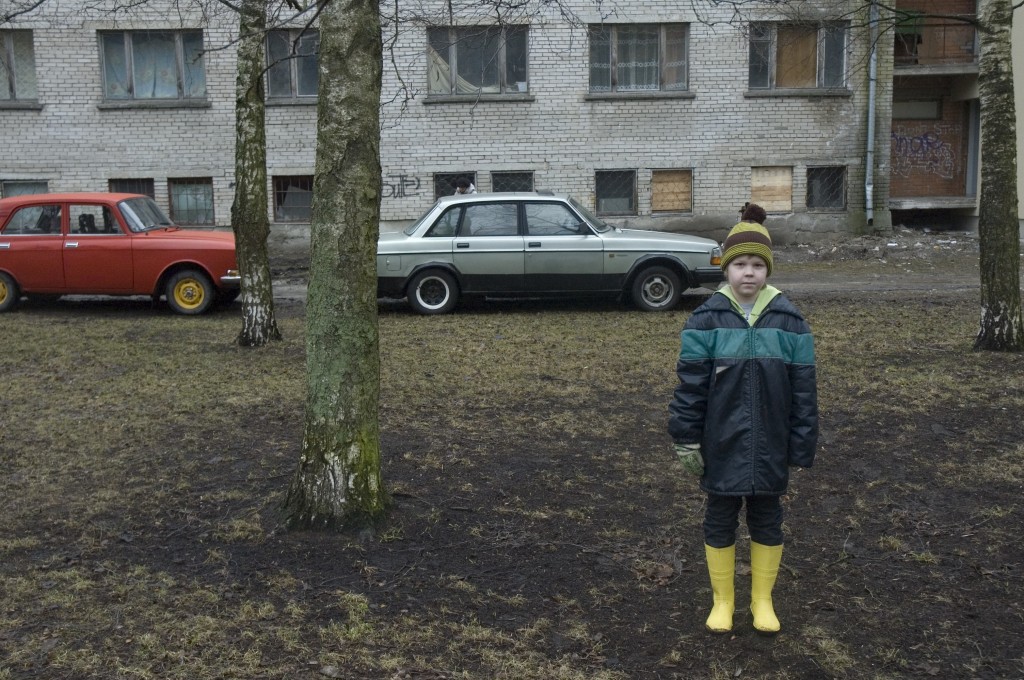Fri 19 Nov 2010
Smash TV
Posted by Ethan under Film Review, NYC Film Critic
Comments Off on Smash TV
Disco and Atomic War
Directed by Jaak Kilmi
***1/2
Jaak Kilmi’s engaging memoir is a nice companion piece to one of my favorite documentaries of the year, Robin Hessman’s My Perestroika, which re-told the story of the fall of the Soviet Union through the eyes of five individuals that lived through it. (Non-festival audiences will finally have the chance to catch Hessman’s film in early 2011 when it arrives in select theaters and on PBS.) Like the men and women in Perestroika, Kilmi came of age in the final years of the U.S.S.R. and has vivid memories of the tumultuous changes happening all around him.
But Kilmi and his family didn’t live in Moscow at the center of Soviet power—rather they resided Tallinn, Estonia, located right across the water from Finland.  The city’s location is a crucial part of both his personal story and the tale of Estonia’s eventual transformation from Soviet satellite state into a free republic. After the Finns installed powerful new television antennas in the mid-‘70s, Kilmi’s family was able—for the first time—to pick up Western television on their Russian-made sets. Suddenly, instead of being forced to watch musty propaganda films and dull news shows, they had the option of sampling programs devoted to the latest dance crazes (disco!), fashion fads (punk!) and, best of all, vintage examples of American-made escapism like Dallas and Knight Rider. Naturally, all these decadent programs were watched in secret—officially the Finnish station didn’t exist in Estonia or the rest of the Soviet Union.
As a kid, Kilmi never thought much about why or how his family was able to see these shows; he was simply ecstatic to be able to follow the weekly adventures of the Ewings and KITT. Besides that, Western TV was a good source of additional revenue—his father made some money “fixing†other peoples’ sets so that they could receive the Finnish station and Kilmi himself earned a profit by distributed homemade TV Guides that would list the Finnish station’s weekly broadcast schedule. It was only later as he went about putting together this film that he came to understand the way that the West employed television as a stealth weapon in the latter years of the Cold War. Rather than confronting the U.S.S.R. head on with military might, the new thinking was to undermine the Soviet state from within by allowing its citizens to glimpse the fun, lavish life that existed in America and elsewhere. (This tactic is commonly referred to as “soft power†and is still regularly employed today in different ways.) The plan worked—Estonians like Kilmi’s family were so entranced by what they saw on their TV screens, they grew less patient with the excuses and empty rhetoric offered up by their government. And once the government lost control over what people saw of the outside world, it was only a matter of time until its collapse.
Kilmi successfully recreates the Estonia of his childhood through a mixture of talking-head interviews, archival clips and staged sequences based on his memories. (Though these “memories†are designed to be more funny than accurate—for instance, Kilmi shows us a montage of young kids pretending to talk to cars via their wristwatches a la Michael Knight, a scene that he admits in the press notes is a deliberate embellishment for comic effect.) Perhaps because the director is telling his own story, the overall tone is brighter and more humorous than a film like My Perestroika, where Hessman may have felt obligated to treat her subjects’ experiences with a bit more weight. (Also, several of the people in that film were actively involved in the marches and protests that preceded the U.S.S.R.’s fall, whereas Kilmi’s main act of rebellion against the State was staying up past curfew one night to watch a broadcast of the soft-core classic Emmanuelle on the Finnish station. So it’s safe to say the Perestroika gang have more serious stories to tell than this guy.) But don’t be completely deceived by the film’s light touch; Disco and Atomic War still makes a number of salient points, from the way television can function as both a means of control and a way to break down barriers to the medium’s undeniable impact on young people, who are far more likely to want to challenge the status quo than their elders. So the next time you’re flipping channels, take a moment and think about which program might be the one that brings down the next totalitarian regime. Personally, my picks are either Modern Family or Jersey Shore…though the latter may actually turn the country’s viewing public against us.
Disco and Atomic War opened in New York on November 12 and will expand to additional cities later this month. Visit the film’s official website for more information.


No Responses to “ Smash TV ”
Sorry, comments for this entry are closed at this time.